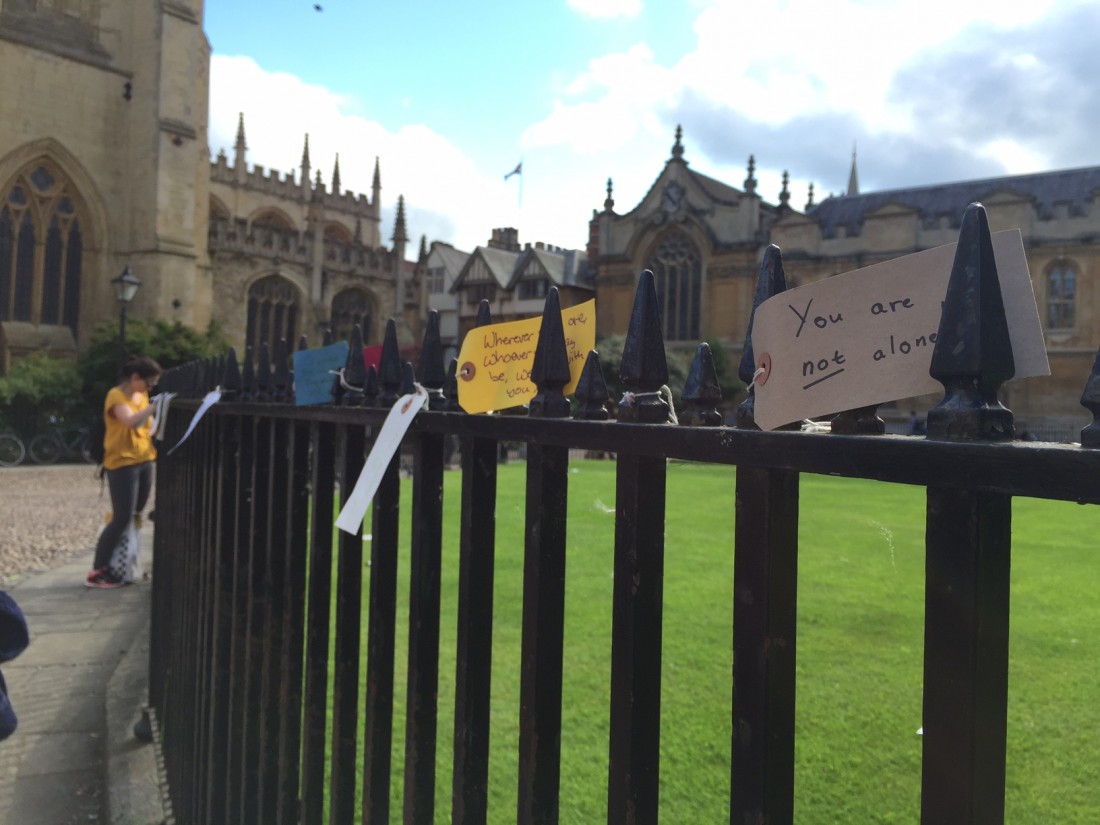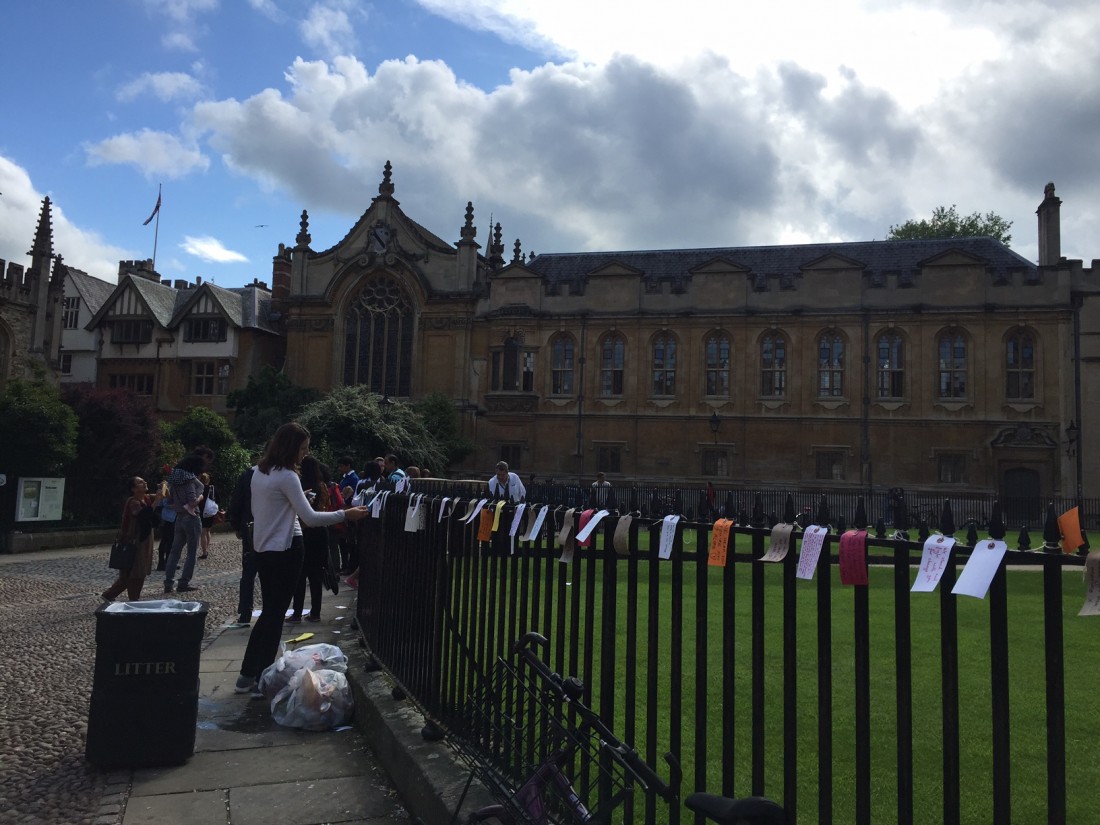Frank Zappa once argued that ‘writing about music is like dancing about architecture.’ Forgive me Frank but I’m going to give it a go. After all, he did name his children Dweezil, Moon Unit and Diva Muffin, so what does he know?
With so much human history behind us, it is perhaps unsurprising that each generation feels the burden of originality weighing upon them even heavier than the last. The 2006 film, ‘The History Boys’ tackles the dilemma head-on – temporary teacher, Mr Irwin, is coaching a group of Oxbridge candidates for their looming aptitude test, and, though the boys do know the correct answers, he insists that in order to be noticed, they must “say something different, say the opposite.” Regardless of the truth, interest is the key. And with every contemporary album I hear, I’m becoming more and more suspicious that Mr. Irwin has been coaching modern artists in a similar vein. Charlotte O’Connor’s debut ‘For Kenny’ was one of my favourite albums of 2011, and I, a fourteen year old innocent, decided to play it as the soundtrack to a family barbeque that summer, eager for my elders to understand that ‘baby you’re a firework’ and ‘party rock is in the house tonight’ were not all the modern generation could boast, desperate to demonstrate that, to some extent at least, music was not ‘better in their day.’ Instead, they scoffed, ‘Who’s this? They’ve clearly been listening to Corrine Bailey Rae.’ Ouch. As much as this little anecdote still pains me, I think it serves to demonstrate my point- pass us the Piriton, we’re allergic to derivativeness.
Imagine this, Bruno Mars’ ‘When I was your man’ on the lips of, let’s say, Marvin Gaye. Instant classic. Motown fans everywhere accept it into their ranks without batting an eyelid. ’50 Greatest Heartbreak Ballads’ just found its fiftieth track. Adele’s ‘Someone like you’- stick a mind-blowing crescendo key-change at the end and hand it to Whitney and we have a nice new addition to ‘The Bodyguard’ soundtrack. McFly’s ‘Obviously’ (a bit retro, I know, but stay with me), with a few cosmetic changes, wouldn’t actually sound out of place on the Beatles’ 1965 album, ‘Help!’ alongside tracks like ‘The Night Before’ and ‘You’re going to lose that girl.’ What I hope this might demonstrate is that these songs, fundamentally, are not bad songs; not the best by any means, but not bad, per se. I truly believe that each of them, had they been written amongst the originals of their respective genres, would be far more revered than they are today. Yet, at some stage, I have seen each of them tossed aside because they sounded like someone else.
Maybe it’s just me, perhaps I have subconsciously surrounded myself with the most cynical of modern music critics. But, irrespective of my circle of disparagers, I do think it a fair generalisation that we are constantly searching for something new, something original. And it’s becoming a hideously tall order given the sheer amount of music which has preceded us. If you’ll allow me to ascend to my pulpit for a moment, Ecclesiastes 1:9 did call it: “What has been is what will be, and what has been done is what will be done; there is nothing new under the sun.” But is this really a bad thing? We seem unable to detach music from its context; a song written in 2016 might be just as good, perhaps better, than one written decades earlier, yet we critique it more harshly for being a little late to the party. What if we were to judge a song context-blind? Surely, the purity of that experience would be so much greater.
Don’t get me wrong, I am in no way an advocate for the Simon Cowell school of carbon copies; within much of what our indie friends might refer to as ‘the mainstream’, we do often find an unabashed repetition of the same four chords, the same bland production and the same lazy lyricism (frankly, it’s astounding how we’ve managed to regress from Jimmy Webb’s “and I need you more than want you, and I want you for all time” to “work, work, work, work, work, he see mi do mi dirt dirt dirt dirt dirt.”) But the opposite extreme is equally terrifying, our obsession with originality pushing us to a point where we’re listening to something because it’s interesting and not because it’s good, every song shrouded in a series of beeps and whistles, every voice plastered with affectation, all in the pursuit of originality. I was confronted with a somewhat jarring realisation of the extent of the problem recently, when I was asked to listen to ‘electronic experimentalist duo’, Matmos, whose entire album is composed entirely out of sounds sampled from a washing machine. Just for that extra edge, they even wheel the washing machine out for live performances…it gets a solo. In case you were wondering, it is every bit as shit as it sounds.
Perhaps I’m being too harsh, it’s not like interesting music and good music are mutually exclusive categories, perhaps we should heed the advice of our late, great Bowie and ‘turn and face the strange’ or, to return to comic-musician and child-naming extraordinaire, Frank Zappa, accept that ‘without deviation from the norm, progress is not possible.’ Equally, however, derivative and good music are not mutually exclusive either. Can’t a good song be so, regardless of its influences, regardless of its originality? Just a thought (maybe not an original one.)











